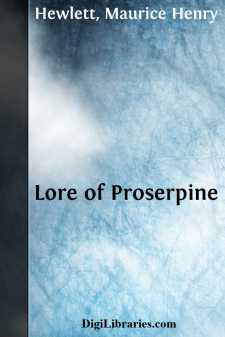Categories
- Antiques & Collectibles 13
- Architecture 36
- Art 48
- Bibles 22
- Biography & Autobiography 816
- Body, Mind & Spirit 145
- Business & Economics 28
- Children's Books 17
- Children's Fiction 14
- Computers 4
- Cooking 94
- Crafts & Hobbies 4
- Drama 346
- Education 58
- Family & Relationships 59
- Fiction 11834
- Foreign Language Study 3
- Games 19
- Gardening 17
- Health & Fitness 34
- History 1378
- House & Home 1
- Humor 147
- Juvenile Fiction 1873
- Juvenile Nonfiction 202
- Language Arts & Disciplines 89
- Law 16
- Literary Collections 686
- Literary Criticism 179
- Mathematics 13
- Medical 41
- Music 40
- Nature 179
- Non-Classifiable 1768
- Performing Arts 7
- Periodicals 1453
- Philosophy 66
- Photography 2
- Poetry 897
- Political Science 203
- Psychology 45
- Reference 154
- Religion 516
- Science 126
- Self-Help 85
- Social Science 82
- Sports & Recreation 34
- Study Aids 3
- Technology & Engineering 59
- Transportation 23
- Travel 463
- True Crime 29
Our website is made possible by displaying online advertisements to our visitors.
Please consider supporting us by disabling your ad blocker.
The Forest Lovers
Description:
Excerpt
CHAPTER I
PROSPER LE GAI RIDES OUT
My story will take you into times and spaces alike rude and uncivil. Blood will be spilt, virgins suffer distresses; the horn will sound through woodland glades; dogs, wolves, deer, and men, Beauty and the Beasts, will tumble each other, seeking life or death with their proper tools. There should be mad work, not devoid of entertainment. When you read the word Explicit, if you have laboured so far, you will know something of Morgraunt Forest and the Countess Isabel; the Abbot of Holy Thorn will have postured and schemed (with you behind the arras); you will have wandered with Isoult and will know why she was called La Desirous, with Prosper le Gai, and will understand how a man may fall in love with his own wife. Finally, of Galors and his affairs, of the great difference there may be between a Christian and the brutes, of love and hate, grudging and open humour, faith and works, cloisters and thoughts uncloistered—all in the green wood—you will know as much as I do if you have cared to follow the argument. I hope you will not ask me what it all means, or what the moral of it is. I rank myself with the historian in this business of tale-telling, and consider that my sole affair is to hunt the argument dispassionately. Your romancer must be neither a lover of his heroine nor (as the fashion now sets) of his chief rascal. He must affect a genial height, that of a jigger of strings; and his attitude should be that of the Pulpiteer:—Heaven help you, gentlemen, but I know what is best for you! Leave everything to me.
It is related of Prosper le Gai, that when his brother Malise, Baron of Starning and Parrox, showed him the door of their father's house, and showed it with a meaning not to be mistaken, he stuck a sprig of green holly in his cap. He put on his armour; his horse and sword also he took: he was for the wilds. Baron Jocelyn's soul, the priests reported, was with God; his body lay indubitably under a black effigy in Starning Church. Baron Malise was lord of the fee, with a twisted face for Prosper whenever they met in the hall: had there been scores no deeper this was enough. Prosper was a youth to whom life was a very pretty thing; he could not afford to have tarnish on the glass; he must have pleasant looks about him and a sweet air, or at least scope for the making of them. Baron Malise blew like a miasma and cramped him like a church-pew: then Adventure beaconed from far off, and his heart leapt to greet the light. He left at dawn, and alone. Roy, his page, had begged as hard as he dared for pillion or a donkey. He was his master's only friend, but Prosper's temper needed no props. "Roy," said he, "what I do I will do alone, nor will I imperil any man's bread. The bread of my brother Malise may be a trifle over-salt to my taste, but to you it is better than none at all. Season your tongue, Roy, enure it. Drink water, dry your eyes, and forget me not."
He kissed him twice and went his way without any more farewells than the boy's snivelling....












